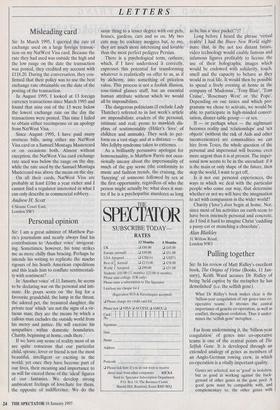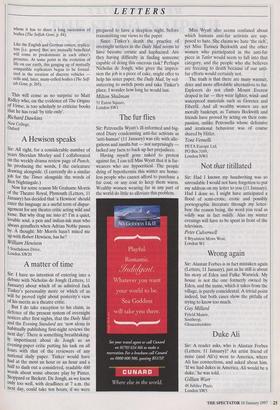Pulling together
Sir: In his review of Matt Ridley's excellent book, The Origins of Virtue (Books, 11 Jan- uary), Keith Ward accuses Dr Ridley of being 'held captive by the metaphor he has demolished' (i.e. the selfish gene).
What Dr Ridley's book makes clear is the `billion-year coagulation of our genes into co- operative learns'. It stresses the central importance of genetic co-operation, as well as conflict, throughout evolution. Thus it under- mines the 'selfish gene' metaphor... .
Far from undermining it, the 'billion-year coagulation' of genes into co-operative teams is one of the central points of The Selfish Gene. It is developed through an extended analogy of genes as members of an Anglo-German rowing crew, in which co-operation is a vitally important quality.
Genes arc selected, not as 'good' in isolation, but as good at working against the back- ground of other genes in the gene pool. A good gene must be compatible with, and complementary to, the other genes with
LETTERS
whom it has to share a long succession of bodies (The Selfish Gene, p. 84).
Like the English and German rowers, replica- tors [i.e. genes] that are mutually beneficial will come to predominate in each other's presence. At some point in the evolution of life on our earth, this ganging up of mutually compatible replicators began to be formal- ized in the creation of discrete vehicles cells and, later, many-celled bodies (The Self- ish Gene, p. 265).
This will come as no surprise to Matt Ridley who, on the evidence of The Origins of Virtue, is too scholarly to criticise books that he has read 'by title only'.
Richard Dawkins
New College, Oxford



























































 Previous page
Previous page